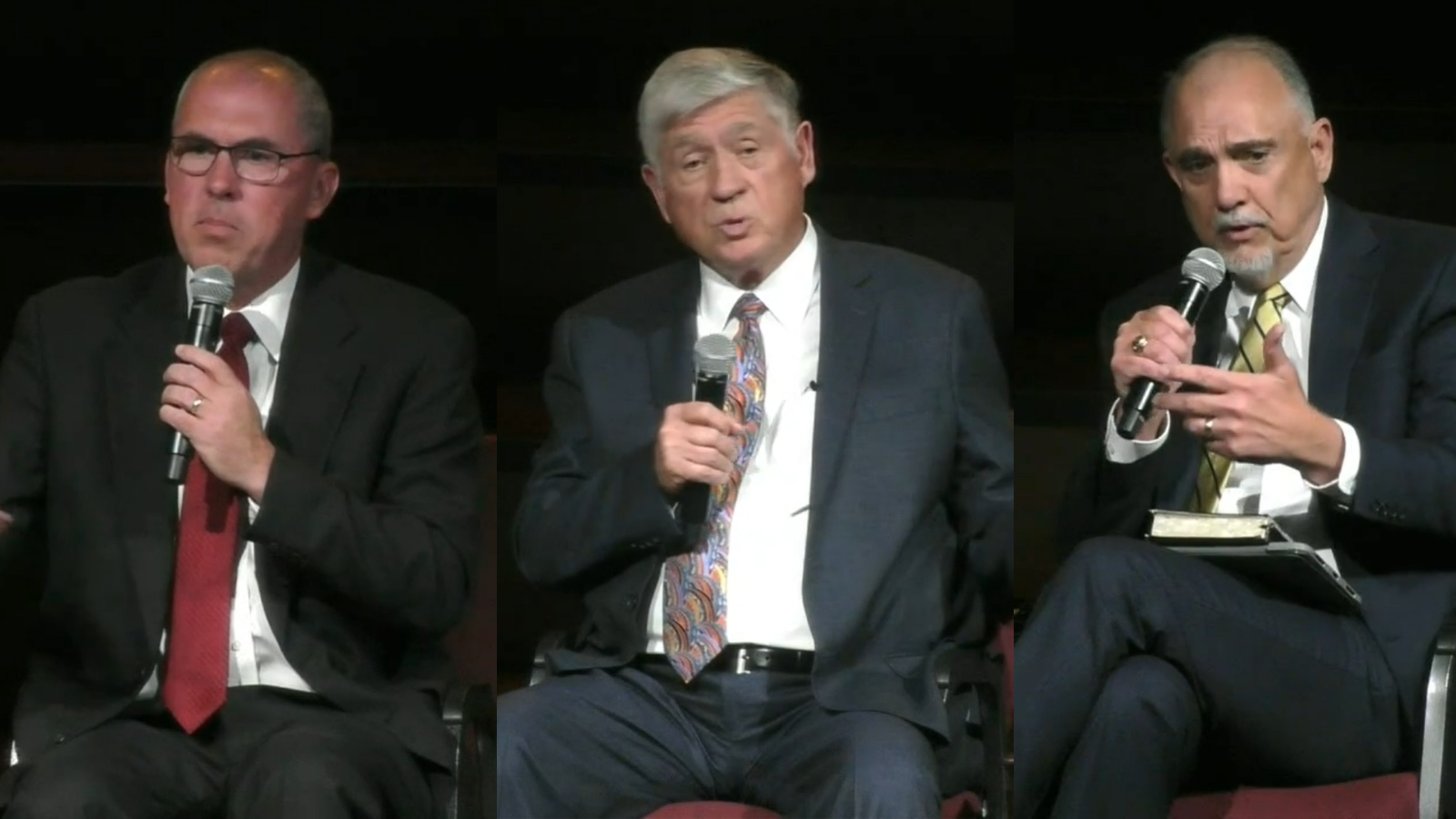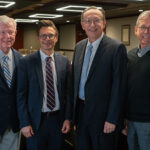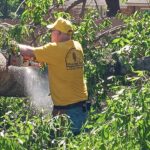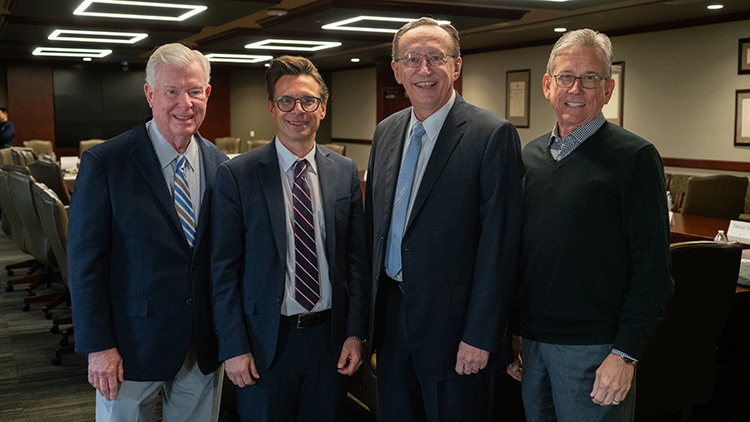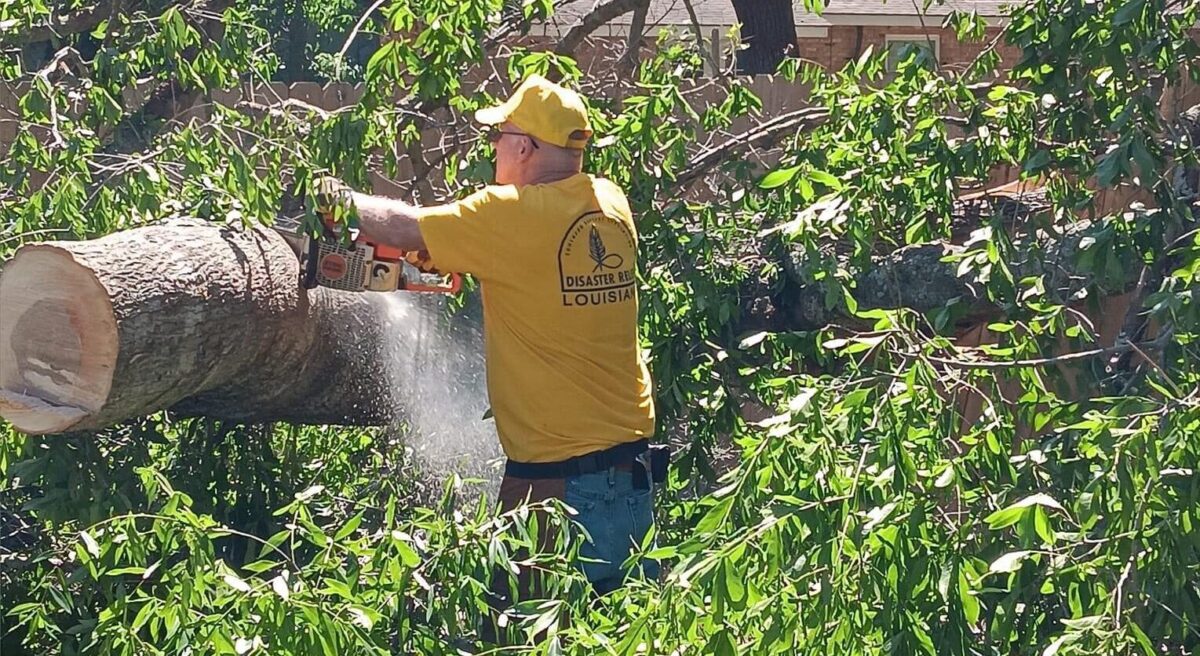The three announced candidates for president of the Southern Baptist Convention shared their views on current issues facing the denomination in a forum held today (May 4) in Texas.
Tom Ascol, Bart Barber and Robin Hadaway have declared their intention to be nominated to lead the SBC after current SBC President Ed Litton announced in early March that he would not seek a second term.
During the nearly 2-hour forum held at First Baptist Church Keller, Texas, and livestreamed by the church, the candidates responded to questions on a myriad of topics ranging from the roles and responsibilities of committees, boards of trustees and local associations in SBC life to responsiveness to messenger concerns and other denominational issues.
Moderators Tony Richmond and Joe Wooddell, both of FBC Keller, moderated the debate-style event.
Each candidate offered a brief personal testimony of their faith journey and each spoke to their “why” for pursuing the role of SBC president.
During the introductory time, Barber noted that none of the candidates for SBC president are pastor of a “really, really large” church, in contrast to those who have recently been in the position. Hadaway pointed out that all three also are graduates of Southwestern Seminary. Barber is pastor of First Baptist Church Farmersville, Texas; Ascol is pastor of Grace Baptist Church in Cape Coral, Florida, and president of Founders Ministries. Hadaway is a former International Mission Board missionary and a senior missions professor for Midwestern Baptist Theological Seminary.
Why they are on the ballot
In speaking to their reasons for running for SBC president, Barber said he had declined the possibility of a nomination in the past but this year “came to the end of [his] stubbornness.” He emphasized what he called a “simple view” of the role and the president’s responsibilities to “protect the rights of the messenger body, to answer the questions of the messenger body and to execute the decisions of the messenger body.”
Hadaway, a former SBC missionary and professor of missions, said his vision is to help Southern Baptists “remember the mission,” which he said is primarily to “cooperate together to send missionaries.”
Ascol said his decision was motivated by concerns he has about the direction of the SBC and the influence of what he called “acidic cultural mindset” that is creeping into institutions and agencies.
“It’s my firm conviction … that the churches of the convention own the institutions and agencies, and the institutions and agencies need to be responsive to the churches, yet I don’t think that’s always happening the way that it should happen,” Ascol said. “My great desire is to see local churches become more involved in the convention process.”
Ascol said he believes trust among Southern Baptists is “fractured” and called for greater “financial accountability” and transparency.
While Barber described himself as a “fan of transparency and accountability,” he disagreed with Ascol’s assessment of the denomination.
“The fact of the matter is that by all the metrics you can look at, Southern Baptists seem to have actually quite a great deal of trust in our entities and our institutions and the Cooperative Program.”
That doesn’t mean everything’s perfect, he said, adding that “churches need to be able to have confidence that money’s being managed well.”
Hadaway, whose experience includes eight months as interim president of Midwestern Seminary in Kansas City and a year as the seminary’s CFO, said that the institutions rely on the SBC’s committee on committees and committee on nominations to select board members, many of whom are lay people or pastors of small- to medium-sized churches.
Financial issues can be complex, Hadaway said, but the trustees are responsible to “decide how much transparency they can have.”
Hadaway said problems are always going to come up “because we’re in a fallen society and even the best of us are fallen,” but Southern Baptists have always been able to deal with problems.
Ascol said Southern Baptists have handled many past issues in positive ways but said the convention needs more “responsiveness and attentiveness” to churches, citing concerns he had with the 2021 resolutions committee.
Barber observed there was a “different presence” and “independent attitude” among messengers at the 2021 SBC Annual Meeting and said 2021 could not easily be compared to previous years’ meetings.
What they would prioritize
As the forum concluded, each candidate spoke to their priorities if elected SBC president.
Ascol said he would focus on “spiritual reformation,” addressing “spiritual apathy and complacency” and “structural renovation” of the trustee, committee and associational systems.
Hadaway said he would remind Southern Baptists of the mission and seek to help “return the joy” of the mission to those in the local church.
Barber said he would serve in a way that “emphasizes and respects the voice of the messengers” and helps the convention “move forward together … with Christian kindness and love and respect.”
To view the full event, including how the candidates spoke to the issues of Critical Race Theory and the forthcoming report of the Sexual Abuse Task Force, watch the video below.

